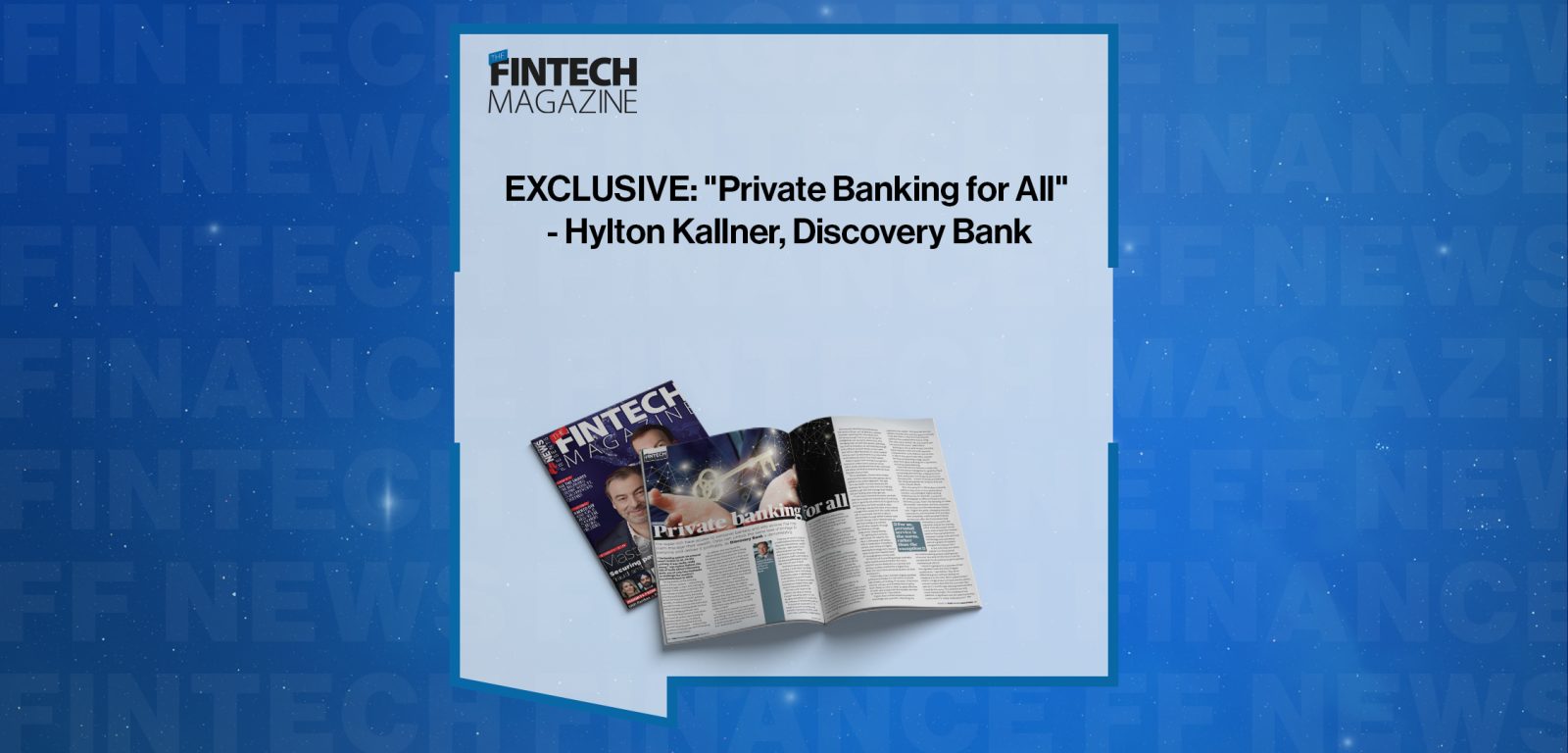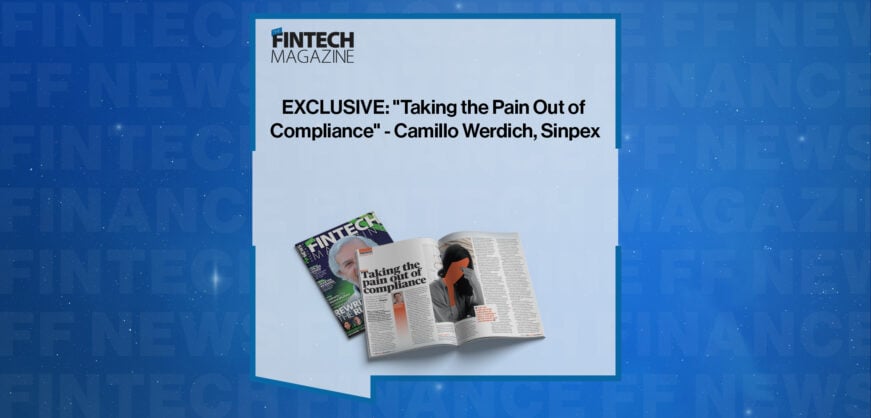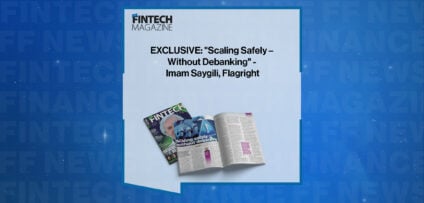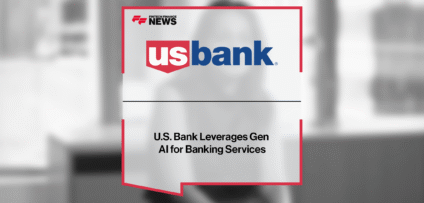Breaking News

EXCLUSIVE: “Private Banking for All” – Hylton Kallner, Discovery Bank in ‘The Fintech Magazine’
The super-rich have access to personal bankers and elite services that help them manage their wealth. Data can unlock the same level of privilege for everyone and deliver it profitably, as Discovery Bank is demonstrating
“The banking system we entered wasn’t broken at all. On the contrary, it was really, really strong,” says Hylton Kallner, the CEO of South Africa’s Discovery Bank, one of only two neobanks to challenge the country’s incumbents back in 2019.
The big daddies of the banking system still are resilient – and proving remarkably agile, in fact. But, having hit its target of one million customers two years ahead of schedule and reached monthly profitability early, Discovery continues to put them under pressure. Notably, it’s demonstrating that it’s possible to scale a full-service bank that delivers private banking-grade services without adding significant cost.
Discovery launched at a time when the financial system dominated by Standard Bank Group, FirstRand, Absa Group, and Nedbank Group seemed impenetrable – indeed, they continue to hold 83 per cent of banking assets in South Africa.
In addition, the neo faced the added obstacle of South Africa being a notoriously tricky place for fintech startups, due to its lack of a clear open banking framework and very different consumer cultures across one country. But Discovery’s distinct, digital first, full banking proposition has delivered consistent, organic growth by tapping into a desire for difference from South African consumers – and happy customers share their experiences.
“Consumer appetite for digital banking was absolutely massive,” says Kallner. “The research that we did showed that about nine out of 10 South Africans had a preference for banking digitally. This reinforced our belief that there was space for us to really make a mark.”
Discovery is unusual in many ways, not least because it’s part of a group operating in both financial services and healthcare/wellness from which it drew synergies to create the world’s first ‘behavioural bank’.
There was no room in its model for a traditional branch structure.
When Discovery entered the fray – and still to this day – legacy banks in South Africa conducted much of their business face-to-face. But cultural and behavioural shifts were already on the way and gathered pace one year later with the onset of COVID.
“Smartphone penetration is rapidly increasing in South Africa,” says Kallner. “And therefore, even in rural areas, you find that the appeal of digital banking is strong because you don’t have the inconvenience of transport and business banking hours. Digital banking makes sense to everybody at that level.”
Discovery used a back-end SAP platform, providing ‘an industrial strength operating system’, but then designed everything from scratch with the customer in mind from that point on. Its customers would receive a full range of services, including savings accounts, transaction facilities, credit cards, forex capabilities, budgeting tools and mortgages. But what differentiated Discovery from other established banks was a hyper-personalised package, more akin to that found in private banking services reserved for the super rich.
“We’re the best of both worlds – a hybrid,” says Kallner. “Yes, we’re digital but all Discovery Bank clients have access to full-service call centres and highly skilled bankers at any time, day or night, seven days a week. For us, personal service is the
norm, rather than the exception.”
Crosshead to break copy
Banking is naturally stratified, so Discovery does reserve a superior package for its Purple account holders. They need to earn roughly six times the average income in South Africa, but if they meet the criteria – and pay the monthly fee of R679 and an annual card fee of R4,000 – they enjoy an elevated ‘world-class experience’. It helped Discovery rank number one in private banking in the 2024/2025 Ask Afrika Orange Index.
But it applies the same principles to its relationship with all account holders. Behavioural data allows Discovery to get a level of understanding on how every customer lives their life, what impact those behaviours have on the risk attached to them, and then helps it incentivise an individual to adopt ‘better’ habits through personal conversations.
Discovery has identified five behaviours that result in 80 per cent of defaults: namely, customers spending more than they earn, not having enough insurance, not saving for emergencies, not saving for retirement, and managing their secured debt poorly. Spending too much on Grand Cru or not stashing enough in the offshore account results in the same bad metrics, right? But those on more modest incomes don’t usually benefit from the same level of personal advice from their banker.
Kallner explains that zeroing in on generic behaviours, rather than income or social status, builds a better picture of the customer, and allows the bank to reward positive fiscal lifestyles at every level.
“For us, personal service is the norm, rather than the exception”
“We’ve developed a shared value model and across the entire Discovery group, we’ve applied a very similar approach,” he says. “So in our health insurance business, for example, the focus is very much on helping people to get well and manage their health, not just funding when they get sick. In our motor insurance business, we track how clients drive and reward them for driving well. It’s good for the client and it’s good for us because there are lower accident rates.
“Banking is exactly the same. If our clients manage their money well, the credit default rate is much lower and we’re able to reward them through better interest rates on their savings, lower interest rates on their borrowings and a whole host of other rewards, through our behaviour-change programme, Vitality Money.
“It’s getting the incentives right so that the value for the client is ultimately a lot better, with a combination of excellent service, state-of-the-art digital banking technology, and a shared value model that rewards them for managing their money well.”
On the face of it, providing always-available, highly trained personal bankers for every customer sounds expensive to maintain and perhaps counter-intuitive for a digital-first bank. But not if those personal bankers all have AI assistants.
“Historically, if you wanted a highly qualified professional banker in a call centre, it would take months of training, if not years. They must train for 100 per cent of every kind of query that’s likely to come in. With a really effective co-pilot, you simply train the bankers on how to utilise the AI,” says Kallner.
It gives them instant access to product knowledge and solutions, improving the experience for clients. “Not least because our bankers have the time and the space to actually coach the client, in terms of how they can optimise the products that they’re using. This adds value on that call, way beyond just the immediate query,” adds Kallner.
Building on the co-pilot model, Discovery Bank released a new raft of AI-powered enhancements to its features and services in March this year. It now offers rewards for financial planning to align clients’ short-term goals and long-term aspirations, including estate planning. Expanded security features include new card and device management capability, fraud monitoring and warnings, a Digital Account Vault, and access to emergency services via Discovery 911 – a move no doubt prompted by the rising kidnapping rate linked to financial crime in South Africa.
Also, Discovery AI is a WhatsApp-accessible platform that drives a more personalised, complex, and intelligent digital banking experience. So, for example, a customer can photograph a coffee purchase to check discounts, or ask, ‘how’s my spending on coffee this month?’ and receive real-time responses.
At the launch of the new services, Kallner said: “Digital disruption, changing consumer expectations, and the power of AI and data have completely redefined what financial services can offer. We firmly believe that transactions, accounts, and payments are just the starting point. From the outset, we set out to build a bank that rewards positive financial behaviours, empowers people with data and technology, and operates as part of a greater ecosystem, designed to improve lives.”
In this interview and others, Kallner has stressed that ‘AI is democratising private banking levels of service’. But what of the future? Can the private-bank-for-all continue to grow, perhaps outside South Africa?
“I think it’s going to be a question of how the regulators view this kind of digital proliferation,” says Kallner. “But we’ve effectively grown without adding any headcount to the bank. We’ve added product, clients, a huge amount of load onto the system, and we’ve done that with the core team that we had 12 months ago. Moving beyond borders is exactly the same. The products are very much transportable. The scalability of our platform is significant and the opportunity that comes with it is really, really powerful.”
This article was published in The Fintech Magazine Issue 34, Page 26-27
People In This Post
Companies In This Post
- EXCLUSIVE: “Taking the Pain Out of Compliance” – Camillo Werdich, Sinpex in ‘The Fintech Magazine’ Read more
- Global Tech Leaders Unite to Propel Emerging Future-Critical Sectors at GITEX GLOBAL 2025 Read more
- U.S. Bank Leverages Gen AI for Banking Services Read more
- Two Thirds of Millennial Travellers Say Flexible Payments Are Their Deciding Factor When Choosing Airlines Read more
- Big Issue Partners With fumopay To Roll Out New Way for Vendors To Take Cashless Payments via Open Banking Read more


















